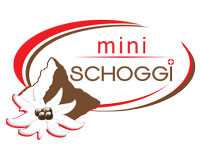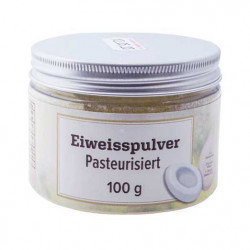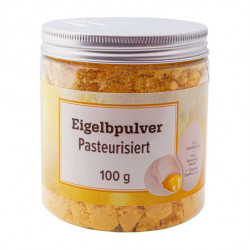-
MenuBack
-
Online Store
-
-
-
-
-
Leer
- Couverture
- Temperature control units
- Aids for chocolate
- Chocolate molds
- Praline fillings
- Chocolate ingredients
- Praline hollow body
- Chocolate colors
- Chocolate tattoos
- Chocolate packaging
- Bean to Bar
- Material for cutting chocolates
- Batons with Kirsch
- Airbrush for chocolate
- High Heels Accessories
- Textured films for chocolate
- Chocolate fountain & fondue
-
-
-
-
-
Kuchen & Torten
- Cakes Fillings & Ingredients
- Fondant & Marzipan
- Cakes tools
- Cake rings
- Silicone molds
- Baking pans for cakes
- Cake stand
- Cakes packaging
- Airbrush for cakes
- Sugar flowers accessories
- Cake Topper & Wedding Figurines
- Cakes dummies
-
-
-
-
-
-
-
-
-
-
-
-
-
-
-
-
-
-
-
-
-
-
-
Füllungen
- Baking chocolate
- Glucose & Sorbitol
- Cocoa beans
- Cocoa nibs
- Monin syrup
- Champagne & Alcohols
- Freeze dried fruits
- Cake & cake glaze
- Flours & baking ingredients
- Chocolate coating & chocolate
- Milk powder
- Granules
- Nuts & Nougat
- Fruit puree
- Creams & Fillings
- Egg yolk & egg white
- Fruit powder
- Special ingredients
- Fondant & Flower Paste
-
-
-
-
-
-
-
- Punching, cutting & embossing
- Mixing bowls & whisks
- Chocolate material
- Thermometer & Burner
- Gloves & Protective Material
- Smoothing & Modeling
- Roll out bar
- Dough scraper & horn
- (Flour) sieves
- Cake turntable
- Spatula & Spatula
- Silicone embossing molds
- Insert strips & cake slices
- Brushes & Tweezers
- Measuring cup
-
-
-
-
-
-
-
-
-
Ausstechformen
-
-
-
-
-
-
-
-
-
Courses
-
-
kurse
- Current courses
- Praline courses
- Chocolate courses
- Chocolate kiss course
- Macaron courses
- Cake courses
- Baking courses
- Patisserie courses
- Ice cream course
- Guetzli, Cookie & Confectionery Courses
- Bread courses
- Pasta courses
- Apéro course
- Cupcakes courses
- Éclair course
- Courses in Zurich - Adliswil
- Children's courses
-
-
- Team Events
- Hen Night
- Retail Store
-
About Us
-
-
-
DirectionsDownload relevant PDF now.
-
-
-
Recipes blog
-
-
Recipes Blog
-
-
-
Shipping and Payment
-
-
Versand/Zahlung/Impressum
-
-
- Online Shop
-
- Novelties
- Sale
- Chocolate and chocolates
- Couverture
- Temperature control units
- Aids for chocolate
- Chocolate molds
- Praline fillings
- Chocolate ingredients
- Praline hollow body
- Chocolate colors
- Chocolate tattoos
- Chocolate packaging
- Bean to Bar
- Material for cutting chocolates
- Batons with Kirsch
- Airbrush for chocolate
- High Heels Accessories
- Textured films for chocolate
- Chocolate fountain & fondue
- Couverture
- Gifts Cards
- Stencils & Stencils
- Cakes & Pies
- Ice cream
- Bread
- Macarons
- Hearty
- Recipe booklets & books
- Cupcakes
- Dessert
- Cake Pops
- Edible decorations
- Fillings & Ingredients
- Glucose & Sorbitol
- Cocoa beans
- Baking chocolate
- Cocoa nibs
- Monin syrup
- Champagne & Alcohols
- Freeze dried fruits
- Cake & cake glaze
- Milk powder
- Flours & baking ingredients
- Chocolate coating & chocolate
- Granules
- Nuts & Nougat
- Fruit puree
- Creams & Fillings
- Egg yolk & egg white
- Fruit powder
- Special ingredients
- Fondant & Flower Paste
- Food Colors
- Auxiliary means
- Spouts & piping bags
- Fondant, marzipan, flower paste
- Bakeware
- Aprons & Potholders
- Cookie cutters
- Season
- Candles
- Party accessories
- Tableware
Egg yolk & egg white
There are 2 products.
Active filters
Egg yolk powder and egg white powder
Differences between egg yolk, egg white and whole egg
Eggs are divided into yolks, egg whites and whole eggs. Whole egg means the whole egg, which is mixed with each other until there is no difference between yolk and egg white. The percentage of yolk in a normal egg is between 20-25 g per egg.
Advantages of egg white & egg yolk powder
For recipes that only require egg white, or egg yolk, it is usually too bad to need the whole egg if you have to throw away the rest afterwards. For this reason, we would like to present you here the somewhat more animal-friendly variant. Egg white and egg yolk powder is in itself nothing more than egg white, or egg yolk, from which the water has been removed. Now, in order to regain the original state, you add water to the powder.
Pasteurized protein powder
To one part protein powder, add five parts cold water. Here, 5 g protein powder and 25 g water correspond to one fresh protein. As soon as you mix the protein powder with water, many small lumps will form. But don't worry, after 15 minutes and stirring a few times, all the lumps will dissolve.
The stirred egg white powder can easily be used for whipping or baking. The egg white is excellent to beat stiff and thus ideal to use for mousses or merengues.
Pasteurized egg yolk powder
To one part egg yolk powder, add two parts lukewarm water. Here, 7 g egg yolk powder and 14 g lukewarm water correspond to one fresh yolk.
The range of application of the two powders is enormous. You can use the powders in the kitchen, in the bakery, for creams, patisserie, cakes and cake fillings and much more. Basically, everything is possible for which you also use fresh eggs. The egg yolk, on the other hand, is very easy to beat until foamy and is therefore ideal for making sponge cake.
The protein powder and egg yolk powder comes from eggs, which come from barn farming, and is pasteurized. Accordingly, pregnant women can also use this product.
What is the advantage of pasteurized egg to fresh egg?
The main advantage of pasteurized egg compared to fresh egg is that it is safer. Pasteurized egg has undergone heat treatment to kill potentially dangerous bacteria such as salmonella. This reduces the risk of food poisoning and infection. Pasteurized egg can be used in various products that contain raw or only lightly cooked egg, such as mayonnaise, ice cream or tiramisu. In addition, pasteurized egg has a longer shelf life than fresh egg, making it longer lasting and more practical for use in mass production.
What is the advantage of powdered egg to fresh egg?
There are several advantages of powdered egg compared to fresh egg:
1. Shelf life: Powdered egg has a much longer shelf life than fresh eggs. It can be stored for several months if kept cool and dry, while fresh eggs spoil much faster.
2. Convenience: Powdered egg can be easily stored and transported. It takes up less space than fresh eggs and is easier to handle, especially in situations where access to fresh eggs is limited.
3. Ease of Preparation: Powdered egg can be easily dissolved in water or other liquids to be used like fresh egg. It does not need to be beaten, peeled or cracked as fresh eggs do.
4. Consistency: Powdered egg can be mixed to a uniform consistency, which can be beneficial in some recipes. Fresh eggs can vary in size and age, and therefore can give different results.
5. Allergies: Powdered egg can be a good alternative for people who are allergic to fresh eggs. By using powdered egg, they can still enjoy the taste and texture of eggs in their meals without risking allergic reactions.
How to store fresh egg white and yolk?
Egg whites and yolks can be stored in different ways.
- Egg white can be stored in the refrigerator for up to a week. It is best stored in an airtight container or a jar covered with plastic wrap. However, it is important to note that egg whites usually do not keep for very long and they lose quality after a few days.
- Egg yolks can also be stored in the refrigerator, but not as long as egg whites. Egg yolks tend to clump or dry out quickly. It is recommended to use egg yolks within 1-2 days. To store it in the refrigerator, it should be kept in an airtight container or a jar covered with plastic wrap. You can also add a little water or salt to stabilize the yolk and prevent it from drying out.


